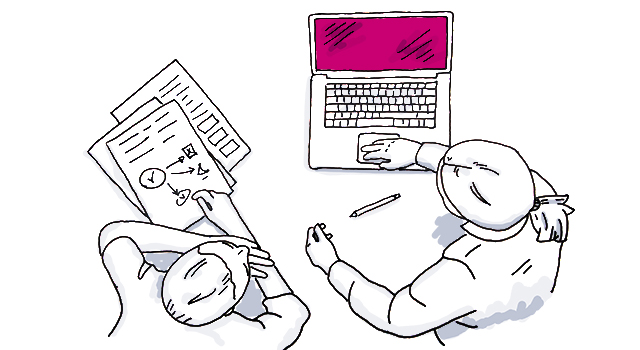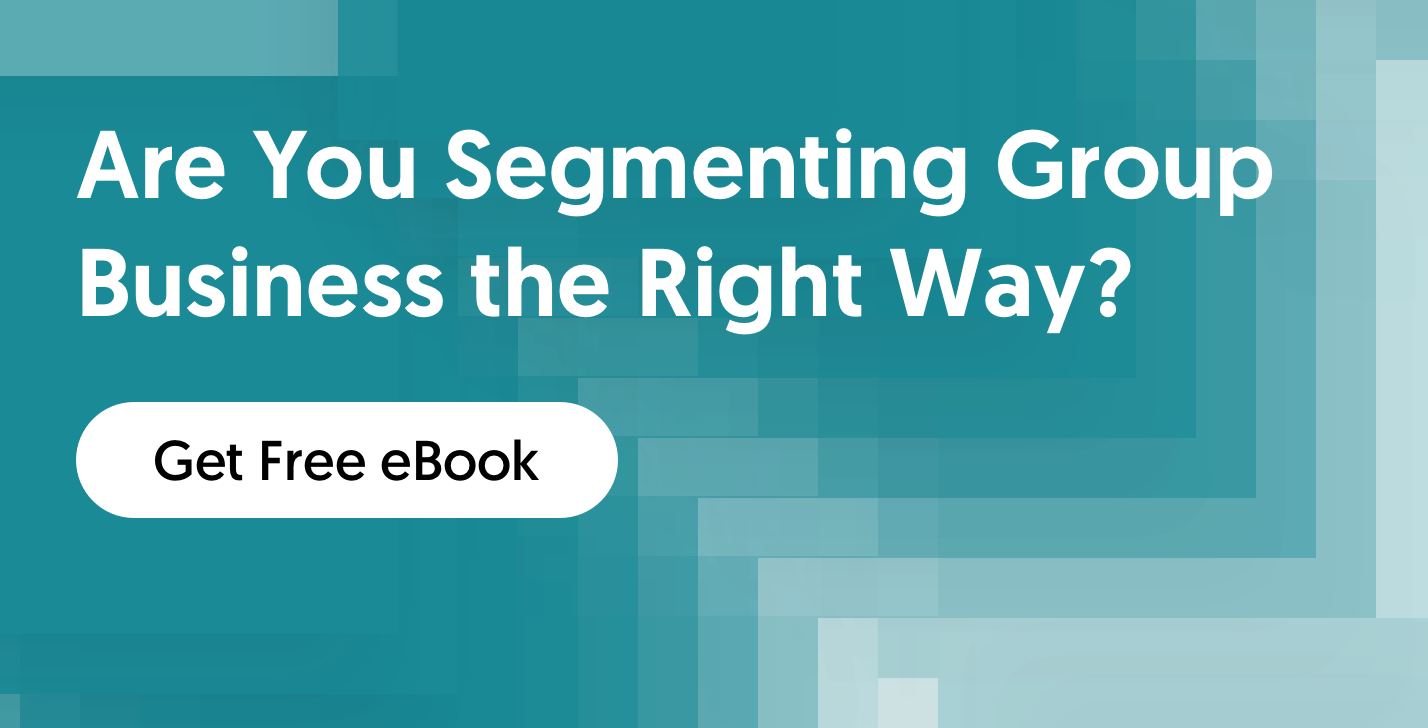
9 Secrets to Delivering Unexpected Personalization for Groups
From products to services to experiences, people expect outstanding, individualized attention, and the hotel industry is no exception. Hotels need tools to track best practices in personalization and uncover touch-points with the greatest impact on group business satisfaction. Thankfully, many of these tools available within your CRM and at-the-ready to help teams across your portfolio.
Read on to find out how to convert more group leads into bookings by using CRM software to deliver the unexpected: a truly personalized experience.
1. Give employees the tools to deliver
Empower front-line employees to make decisions to exceed”rather than merely meet”expectations. With cloud-based hotel CRM software, staff can access important group details, reference to-do lists, read, create, and share notes, and stay connected from any device, in any location. This supports timely, effective responses to the inevitable questions and issues that arise during a conference or multi-night group stay.
Keep in touch through the guest journey: Set up easy, one-question satisfaction surveys that are triggered by specific events, including check-in, room service delivery, spa services, and check-out. Allow staff to react to negative responses as they come in, which can fix the problem before it has a chance to make it into a negative review. Offer up a voucher for breakfast, free room service dessert, or a bottle of wine, and track all experiences that don’t meet the property’s standards.
2. Make connections to secure future bookings
Having top-tier connections puts you in a desirable position to capture group bookings. Build rapport with sought-after speakers, professionals, performers, distributors, and vendors, and include multiple contacts for each within your CRM. When a lead hinges on a specific detail or a group asks for recommendations for impressive talent, those relationships may earn a signed contract.
Within each contact, add detailed notes to show what the contact can offer, such as the pastry chef known for dessert pop-ups, a local musician who keeps a few bookings open for preferred connections, or the wine-supplier who can always track down a rare vintage. The ability to respond with we know a person puts you at an advantage.
3. Offer a loyalty program across your hotel portfolio
Most hotels don’t offer rewards programs for groups. Become group booking innovators by developing a loyalty program specifically aimed at groups, and offer it throughout your portfolio. Include clear incentives for both guests and planners at predetermined booking thresholds, and increase the benefits with each event booked. Loyalty benefits to consider:
- A welcome bag for each attendee
- A complimentary donut and coffee bar in the meeting space
- Discounted spa services for all lodged guests after the conference
- An additional small-meeting room for free
- Waived room service charges for event attendees
- Room or meal vouchers for event staff for before, during, or after the event
- Stay vouchers for a future date for personal use for event coordinators, or for the business to use as incentives for attendees

4. Share best-practices for groups, but avoid one-size-fits-all
While brand recognition wins business, don’t underestimate the power of individual properties. Every team works differently to streamline event processes and group booking communications, and the same strategy may not work for every property across the portfolio. Don’t mandate a structure if it doesn’t produce results. Instead, look at the big picture and see which strategies are performing, and implement them only where they make sense.
To assess the value of distinct service strategies for groups, hold debriefing meetings following events to discuss the most successful service touchpoints, and where there were notable shortfalls in service. Perhaps calling guests to the buffet table was streamlined, while the A/V setup for the after-dinner talk was glitchy. Seek out honest input from staff who are in the mix throughout the event, such as food service employees”often they’ll notice things you miss.
Note and track these details within the CRM and watch for trends. You may find surprising answers to common issues. Perhaps hiring outside staff to oversee guest transportation frees up employees who can offer support elsewhere. Implement the top-performing strategies and solutions across the portfolio.
5. Tailor promotions based on booking history
Anticipate your customers’ needs based on previous bookings so you can fulfill needs even they haven’t considered. If a meeting space was a little tight the year before, suggest a larger conference area and provide the data to back it up”event organizers appreciate the attention to detail and expert guidance. When specific events show a sharp increase in requests for transportation from the train station, offer a shuttle service to meet that need. Offers unrelated to customers’ needs may look insincere, but presenting relevant offers increases loyalty.
Other booking history patterns and related promotions are:
- A mix of OTA and direct bookings for an annual event. Offer special promotions to guests who book through the hotel’s website.
- A regular group booking is chronically late checking out. Consider waiving late check-out fees to show appreciation for their loyalty.
- A group uses mobile options throughout their stay. Push through an app-based discount at the bar as a special thank you.
6. Track customer service requests across properties
Get one step ahead throughout the guest journey: Keep notes detailing frequent requests so you can adapt to customer needs and solve problems across the portfolio. Scour reviews to see what’s lacking, what’s a hit, and where service could be improved. Log calls to the front desk to see where you’re missing the mark.
Head off requests for bottled water by offering complimentary bottles in each room. Do guests rave about the toiletries? Create a signature scent and offer full-size products for sale in the lobby. Maybe a faulty faucet issue keeps popping up throughout rooms or across the portfolio. Track these maintenance requests and upgrade across the board to prevent future complaints.
Answer the demand for speedy service with an app or in-room device for customer service requests. These offer convenience at a guest’s fingertips, and data from requests can be listed in a CRM to anticipate necessary improvements. Consider an instant app for Android devices: Regular apps take up storage space and clutter a user’s home screen, but an instant app allows lightweight features without requiring a download.
7. Discover the formula to converting group leads
When leads don’t convert, look to the CRM to uncover trends. Speedy RFP responses or a recent renovation may be the reason for won business, while a lag in response time or outdated meeting spaces may be causing leads to look elsewhere.
If statistics indicate pricing may hinder group booking success, consider the competition’s pricing, and adjust accordingly. Convert group leads with announcements and promotions relevant to their needs.
Combat a lack of follow-up with an automated email campaign triggered at specific points in the process. Check in on planning, offer assistance, and provide incentives to book”without adding to staff workload. Contact doesn’t need to stop because a lead didn’t convert, keep in touch and stay on the radar for future booking needs.
Have you noticed an increase in turned down leads due to meeting space constraints? Examine the use of space to determine ways to increase wins. Trends indicate that Millennials prefer smaller rooms and well-appointed common areas. If Millennials make up a significant number of bookings, adjusting room size in favor of added meeting space could increase your group business wins.
8. Track competitors to develop winning strategies
Create a hotel competitive advantage by knowing your competition. Watch the big players in your immediate region and in your market segment further afield and build competitor profiles within your CRM. Record their strengths to prevent overselling where another brand outperforms your own, but track weaknesses as well. Note when hotels lose leads and detail the reasons why to win future bookings.
If you can’t out-deliver the competition, examine the areas where your properties do shine and tailor your strategy accordingly. By keeping an eye on industry standards for group business you can develop strategies to meet changing expectations, and avoid knee-jerk reactions that don’t align with specific properties.

9. Take advantage of A/B testing to create a better experience
Weed out stale offerings, tailor the brand to suit the audience, and improve the customer experience with split testing. Large-scale A/B testing is valuable for e-commerce websites, but there are plenty of opportunities to experiment with the customer experience in the hotel industry. A/B testing is most often associated with email campaigns and website layout, but the process is beneficial elsewhere as well.
Create trial menus, offer in-room voice control, implement an automated email campaign to secure reviews, or test group booking incentives at select properties across the portfolio”then track performance within your hotel CRM software. Analyze the results and roll out the best performing features portfolio-wide. Split testing is a continual process: Run a test, examine the results, tweak the test and run it again, look at the latest results, and repeat. Track results, measure the ROI, and implement the changes that boost the customer experience and win group clients.
Adapt to the needs of group guests when you use hotel CRM software to track trends and streamline processes that ensure you’re always delivering more than is expected. Personalized service can easily get lost in the crowd, but follow these tips and you’ll deliver customer service that wins positive reviews and repeat group bookings.
Ready to discover how CRM software can help you personalize group business? Request a demo of Social Tables sales and catering crm”it’s easy to learn!
Or learn how group CRM software helps select-service hotels improve their ROI on group bookings.

